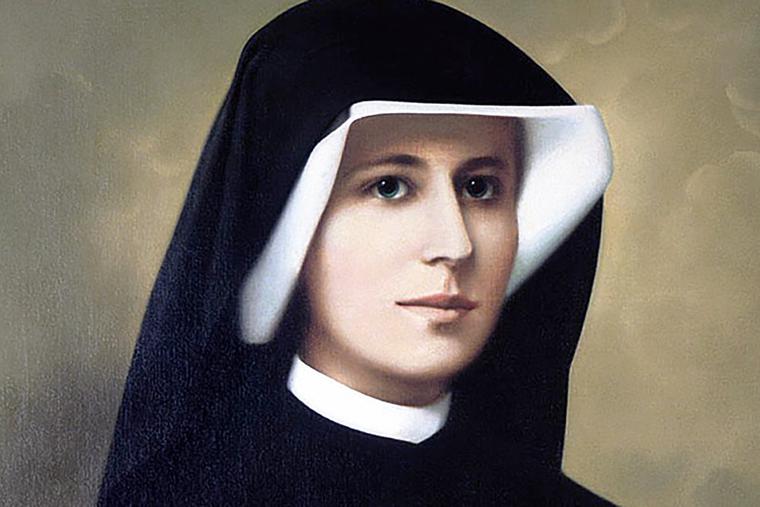St Faustina

In the annals of Catholicism, certain figures shine brightly as beacons of faith and devotion, leaving an indelible mark on the faithful through their extraordinary lives and teachings. Among these luminaries stands Saint Faustina Kowalska, whose legacy continues to inspire millions around the world, particularly through her profound devotion to the Divine Mercy.
Born in Poland in 1905, Helena Kowalska was the third of ten children in a poor but devout family. From an early age, she exhibited a deep spirituality and a fervent desire to dedicate her life to God. At the age of 20, she entered the Congregation of the Sisters of Our Lady of Mercy in Warsaw, taking the name Sister Maria Faustina of the Blessed Sacrament.
It was within the confines of the convent that Sister Faustina’s spiritual journey took a momentous turn. In 1931, she experienced a series of mystical visions in which Jesus appeared to her, revealing His boundless mercy and instructing her to spread this message throughout the world. These encounters culminated in the establishment of the Divine Mercy devotion, which centers on the belief in God’s merciful love for all humanity, as exemplified by the suffering and death of Jesus Christ.
Central to the Divine Mercy devotion is the Chaplet of Divine Mercy, a prayer composed by Saint Faustina herself. This powerful prayer, recited on rosary beads, invokes God’s mercy for the sake of Christ’s sorrowful Passion, pleading for mercy upon the whole world and especially for sinners. The devotion also includes the veneration of the Divine Mercy image, featuring Jesus with rays of red and white light emanating from His heart, symbolizing the blood and water that flowed from His side on the cross.
Despite facing skepticism and opposition within her own religious community and from Church authorities, Sister Faustina remained steadfast in her mission to promote the message of Divine Mercy. Through her writings and personal testimony, she tirelessly emphasized the need for repentance, trust in God’s mercy, and acts of compassion towards others.
Tragically, Sister Faustina’s earthly life was brief, as she succumbed to tuberculosis at the age of 33 in 1938. However, her spiritual legacy endured and flourished in the years following her death. In 2000, Pope John Paul II, himself a devout proponent of Divine Mercy, canonized Sister Faustina as a saint, declaring the Sunday after Easter to be Divine Mercy Sunday, a day of special significance for the faithful.
Today, Saint Faustina’s influence extends far beyond the borders of her native Poland, resonating with Catholics and Christians of diverse backgrounds worldwide. Her writings, including the celebrated diary “Divine Mercy in My Soul,” continue to be read and cherished by countless individuals seeking solace, guidance, and renewal of faith.
Moreover, Saint Faustina‘s canonization and the official recognition of the Divine Mercy devotion by the Catholic Church have led to a resurgence of interest in her life and teachings, sparking a global movement dedicated to spreading the message of God’s mercy and compassion.
Conclusion
In an era marked by strife, division, and uncertainty, Saint Faustina‘s timeless message of Divine Mercy serves as a beacon of hope and healing for a world in need. Her life stands as a testament to the transformative power of faith, forgiveness, and love, inspiring believers to embrace God’s mercy and extend it to others with open hearts and compassionate deeds. As we reflect on her extraordinary legacy, may we strive to embody the spirit of Divine Mercy in our own lives, bringing light and redemption to a world hungering for God’s boundless love.





